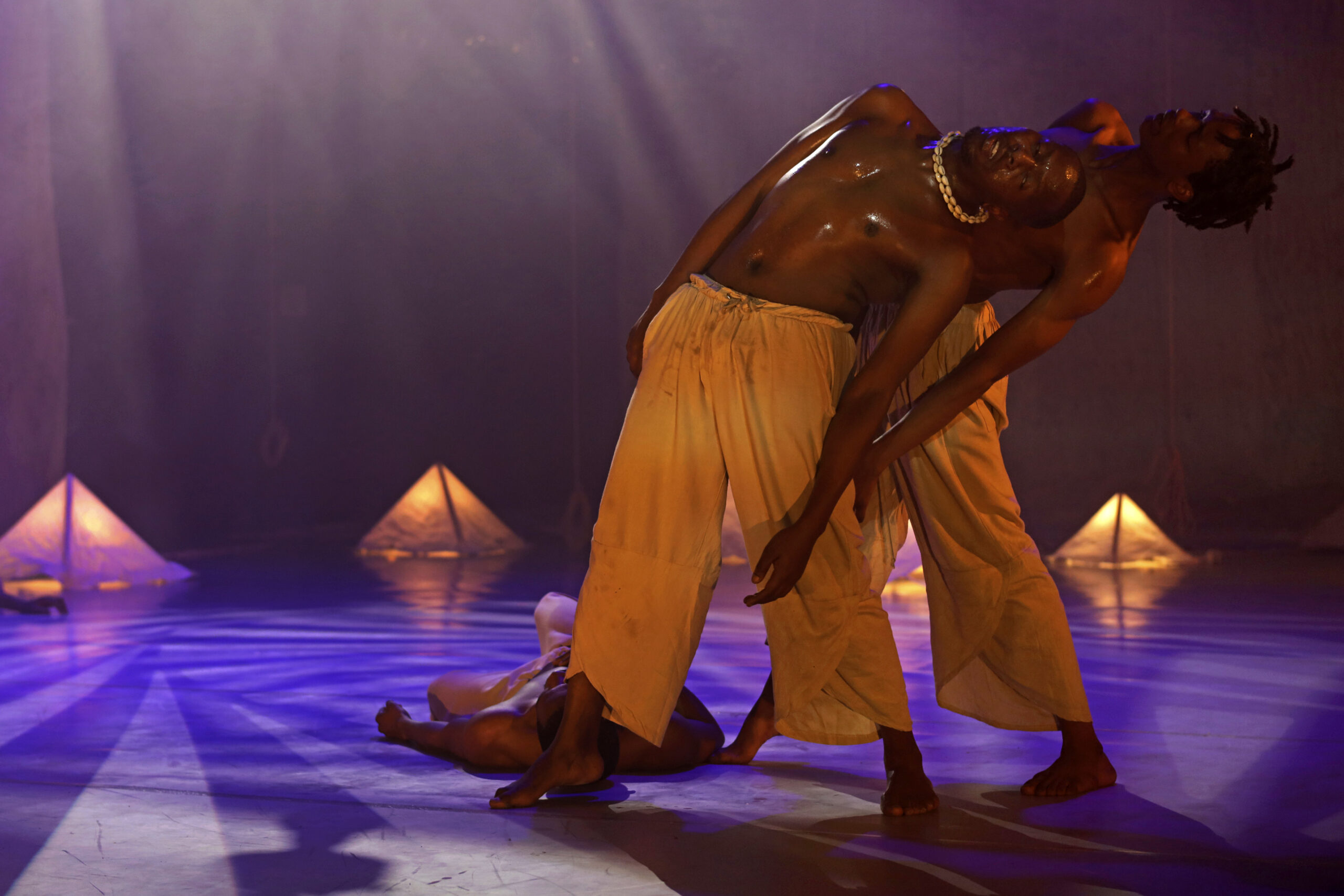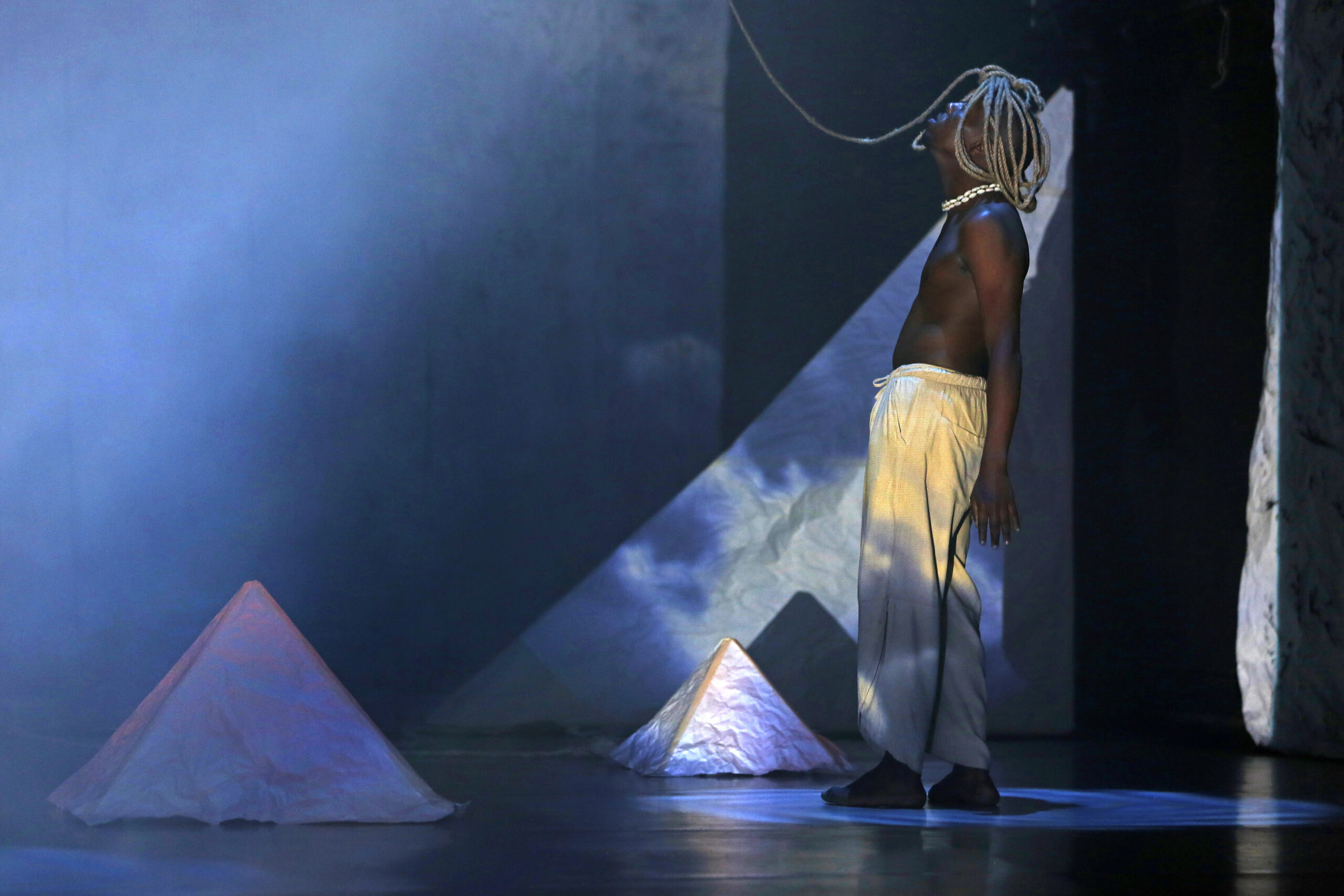By David Mann
The stage is an ominous still-life. Lamps in the form of pyramids are scattered across the floor, and brittle papers line the walls. Smoke rises like a spectre and fades away. In the centre, four figures remain frozen in time, a rope bundled atop each of their heads reaches up to the ceiling.
In Don’t Let the Sun Set on You Here, dancer and choreographer Thami Majela’s (Standard Bank Young Artist) work, aesthetics reign supreme. The piece, explains the programme blurb, “is putting critical lenses on the world and Africa through the use of the contemporary dance language.”
At times, this language is slow and mournful. Then there is speed and frenzy. Always, there is a conversation between individual dancer and greater ensemble, history and movement, music and the body in motion.
The work is choreographed by Majela, who also performs in the work, alongside fellow South African dancer Sibonelo Mchunu, Tawanda Mandara from Zimbabwe, and Mahmoud Mbega from Tanzania.
They are accompanied by the percussionist, Molawa Mohlakane, who takes his position to the side of the stage, often competing with the harsh digital sound components of the work.
While the ensemble is a vital part of the piece, each dancer brings a distinct style of dance – a language of movement – to the performance. This is best showcased in the solo moments, which serve to inform and bolster the work’s collective choreography.
Some of Don’t Let the Sun Set on You Here’s key themes are held in its floorwork. There is a particular solemnity to the work, an emotional and physical weightiness that’s echoed in their low, slow and mercurial movements. In several sequences, the body becomes a burden – something to be held up and carried by another.
The spoken word is used sparingly, and to sufficient impact – “Our calabashes are dry,” whispers Majela, surrounded by high, husky walls. Special mention must go to Mandla Mtshali’s lighting and set design. The simple, shrewd use of lighting, shadow and projection conjures whole realms anew, turning floors to oceans or sprawling desert scenes.
Still, Don’t Let the Sun Set on You Here’s striking image-based theatre often feels like a (literal) smokescreen for an uncertain narrative. The sequences are long and dreamlike – there is endless movement held in the memory of the body – but they are difficult to piece together. Oftentimes, their order feels disparate and unclear in their contribution to the greater story of the performance.
Perhaps I’m missing the point. This is a performance of various somatic dialects after all. And even uncertain or imprecise conversations can be generative. Certainly, they can be beautiful.
Don’t Let the Sun Set on You Here is on at the Rhodes Box until 25 June.



